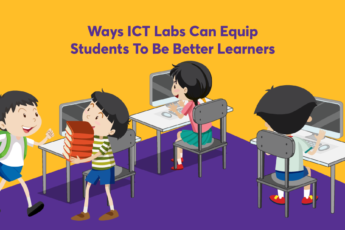Building Parent-Teacher Relationships To Improve the Learning Experience
The parent-teacher relationship is one of the essential factors in a child’s education. Good relationships between teachers and parents can help create an outstanding learning environment that allows children to overcome the difficulties they face academically. When parents and teachers work together, they can build upon the home-school relationships that are already in place, creating an environment where kids can excel.
When parents feel connected to the school, they are more likely to receive information about their child’s academic performance and behavior from teachers and administrators. This helps families understand how to be effective partners in their child’s education by knowing what resources are available when needed and how to support their child at home. A recent study demonstrated that a robust parent-teacher relationship during the pandemic lockdown helped students academically and emotionally.
Role of Parents and Teachers in Child’s Education
👩🏫 Teachers
Teachers are often the first contact point for parents with their child’s education. A great parent-teacher relationship is based on mutual respect, understanding, trust, and a shared vision for the child. To build this relationship, follow these tips:
- Create a welcoming environment: Make sure parents know what’s expected at drop-off and pick-up times. Post directions for parking, early dismissal, and late arrivals in your classroom. Provide directions to get to the school, as well as information about upcoming events and activities.
- Be friendly and approachable: Parents may not have time to visit with you during the day, but they still want to feel like they can come to you if they have questions or concerns about their child’s progress or behavior in class. Be available after school so that parents can easily reach you by phone or email when necessary. Patient is essential when dealing with parents reluctant to be involved in their child’s education, since not all parents feel comfortable communicating with educators. Some may simply lack the confidence to speak up during meetings or conferences. Initiate conversations with such parents and let them speak their minds.
- Be honest: Don’t hide information from parents about their child’s progress or behavior. If you’re concerned about something, talk to the parents about it as soon as possible so they can help their child improve. Parents should also feel free to share any concerns with you, so they can work together to solve problems.
- Listen carefully and respond thoughtfully: Parents may have questions about their child’s behavior and performance at home, so listen carefully and try to address their concerns without making judgments or assumptions about what might be going on at home that could be impacting schoolwork or behavior issues in class. Don’t get defensive or blame parents for their children’s problems. Instead, offer suggestions for ways they might support their child’s learning at home that will help improve performance in class.
- Don’t make promises you can’t keep: Teachers shouldn’t promise results from anything beyond what they’re responsible for — if you’re a reading teacher, don’t promise improvements in math skills because there is little you can do to influence those skills outside your classroom directly. However, if you see the potential for growth in those areas, encourage parents to seek assistance elsewhere.
👪 Parents
The benefits of having a solid parent-teacher relationship extend far beyond the classroom. Parents are a child’s first teacher and are often the most influential in shaping their child’s behavior. Parents can be a valuable resource for teachers, helping them understand students’ needs and challenges outside school. In turn, teachers can help parents become better advocates for their children at home and in the community. The following tips can help you build a positive relationship with your child’s teacher:
- Get to know your child’s teacher: After the first few days of school, ask your child what they like and don’t like about their teacher. This will give you insight into how to approach them when necessary and allow you to get acquainted with your child’s class teacher.
- Be supportive of your child’s teacher: It can be challenging for teachers when students misbehave in class or don’t pay attention during instruction time. But instead of making excuses for them or complaining about the situation, try being supportive by offering encouragement. You can do this by saying, “I know he’s trying his best” or “I’m sure she’ll figure out how to help him.” Your positive attitude will go a long way!
- Parent-teacher communication: It can be intimidating to talk to your child’s teacher, especially if you’re unsure what to say or feel you’re wasting their time. But it’s vital that you communicate regularly with your child’s teacher, so they know who they will be teaching and how best to reach them. If there are any issues or concerns about behavior or progress in school, tell the teacher, so they can address them early on before they become more significant problems down the road.
- Avoid missing PTA meetings: Be involved in school activities like open houses and parent-teacher meetings. This helps build relationships with other parents and shows them that you’re serious about being involved in the education process at all levels. Parent-teacher conferences are a great way to get a feel for how your child interacts with their teacher. At these meetings, you can ask questions about your child’s progress, address concerns and learn more about what your child learns in class daily.
- Be respectful: It can be challenging for teachers when parents disrespect them or believe they’re responsible for their children’s behavior at school — but it happens more than we realize! If you don’t agree with something a teacher says, respectfully explain why and try to devise a solution that works best for everyone involved — including yourself!
Square Panda’s learning interventions seek to engage every stakeholder of the learning ecosystem in a comprehensive manner, and help them realize their learning objectives. To know more, visit ecce.squarepanda.in




Leave a Comment